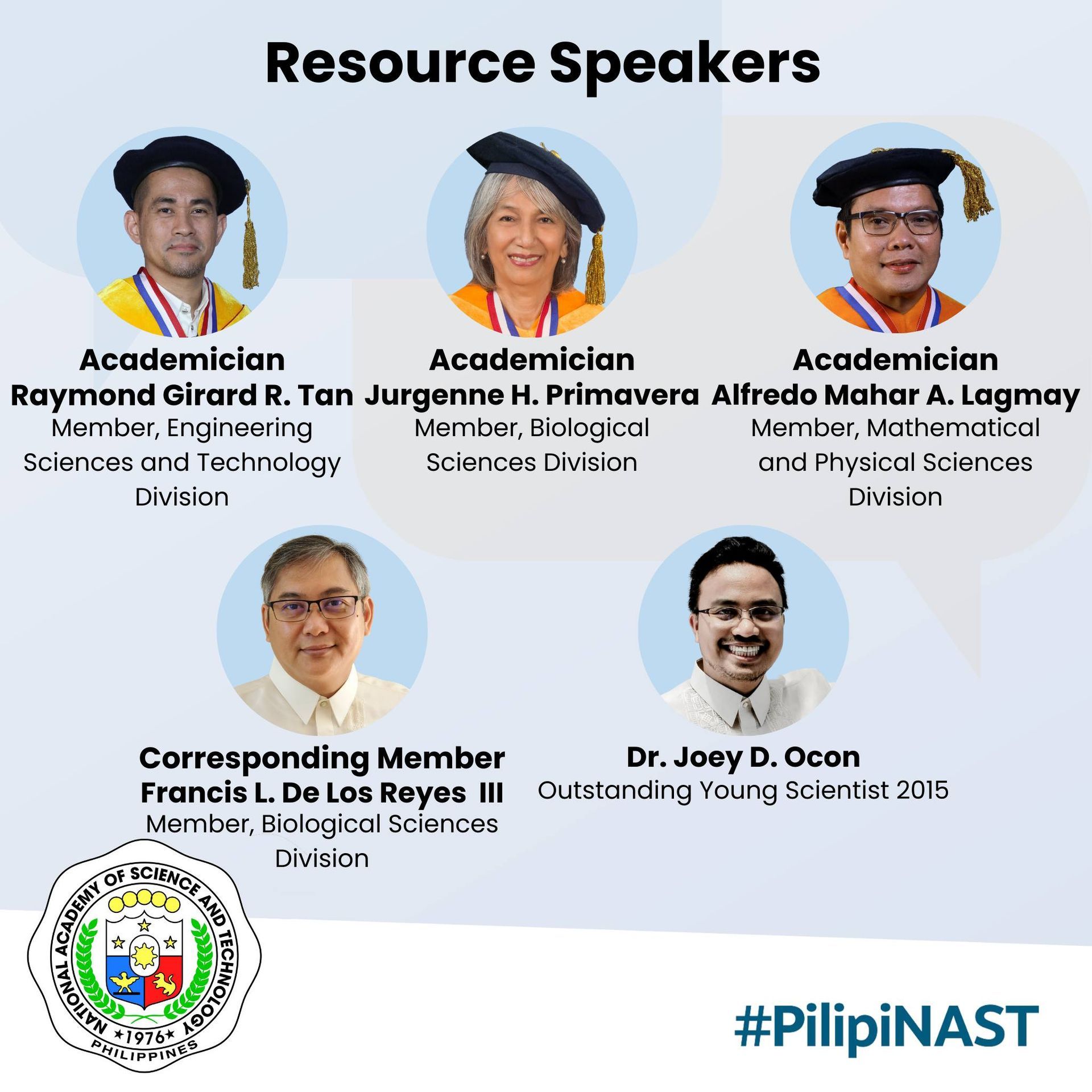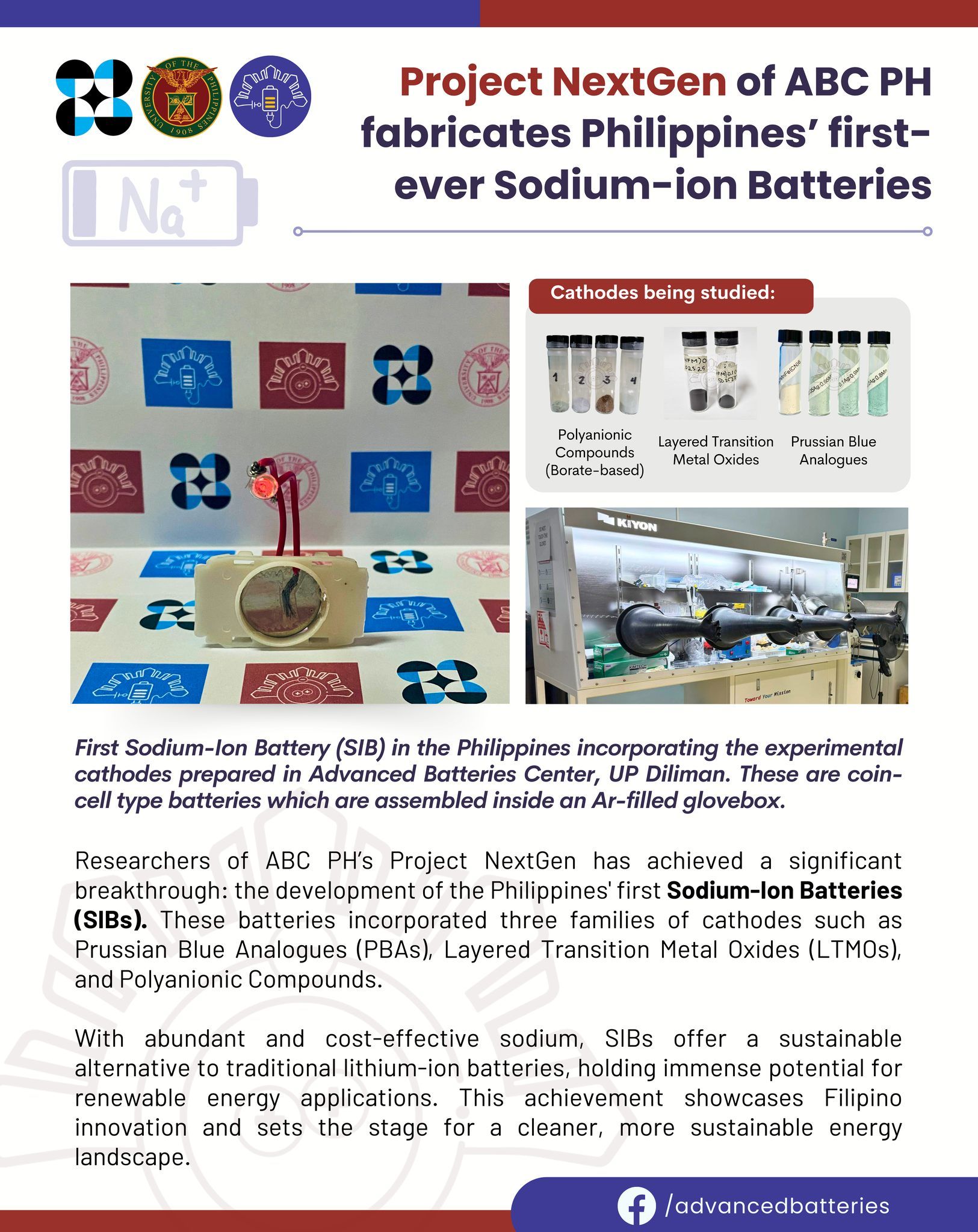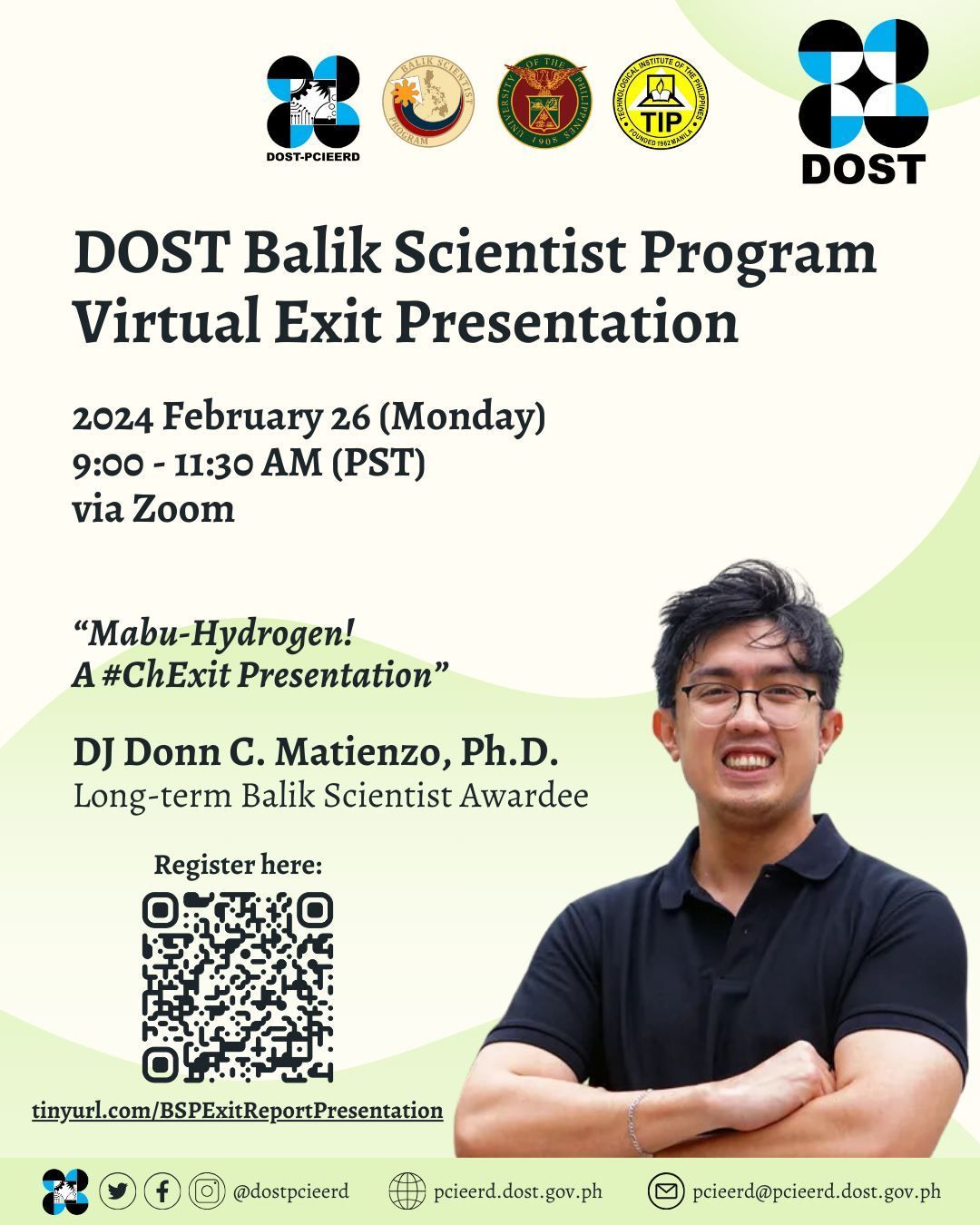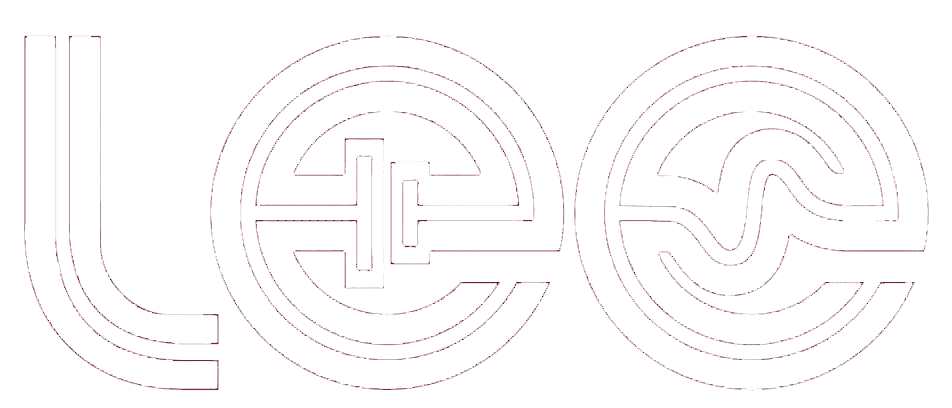By Mecaelah Palaganas
•
12 Apr, 2024
The National Academy of Science and Technology Philippines (NAST PHL) conducted a three-part webinar series on the Innovations for Human and Planet Health and Security to promote open innovation and collaboration as a defining factor of socio-economic development. Highly esteemed NAST members of the representative divisions of various fields in science, awardees, and experts were invited to tackle the current innovation ecosystem of the Philippines and the innovative solutions that address food security and climate change. Aimed to promote multidisciplinary discourse and partnerships, the event was participated by researchers, policymakers, government officials, and the general public. Among the prestigious roster of resource speakers was Prof. Joey D. Ocon who delivered his talk on “Next Generation Batteries and Green Hydrogen with Renewables: Opportunities in the Clean Energy Transition” during the third segment of the NAST PHL Innovation Series. Prof. Ocon shared insights on the crucial role of energy storage technologies in the transition to renewable energy sources and the scalability of energy systems that can help satisfy the energy demand in the country. As part of the vertically-integrated R&D agenda of the Laboratory of Electrochemical Engineering (LEE), he also introduced water electrolyzer technologies involved in the production of Green Hydrogen. Moreover, the research facilities in LEE such as the CHED-LAKAS funded Hydrogen as Vector for Energy (HyVE) Research Facility and the DOST-NICER funded Advanced Batteries Center, both of which are first of its kind within the country, were highlighted as well as their capabilities and future endeavors. In the area of commercialization, Prof. Ocon discussed the multi-scale approach of the startup Nascent Technologies Corporation and its mission on industrial decarbonization by providing technologies and solutions for various energy storage applications. Through information dissemination in his thematic talk, more innovators and collaborators can come forward in support of the vision of the ongoing projects led by Prof. Ocon and devise integrative innovations that can contribute to the clean energy transition in the Philippines. Reference: https://nast.dost.gov.ph/index.php/13-news-press-releases/752-nast-phl-to-conduct-webinar-series-on-innovations-for-food-security-climate-change






